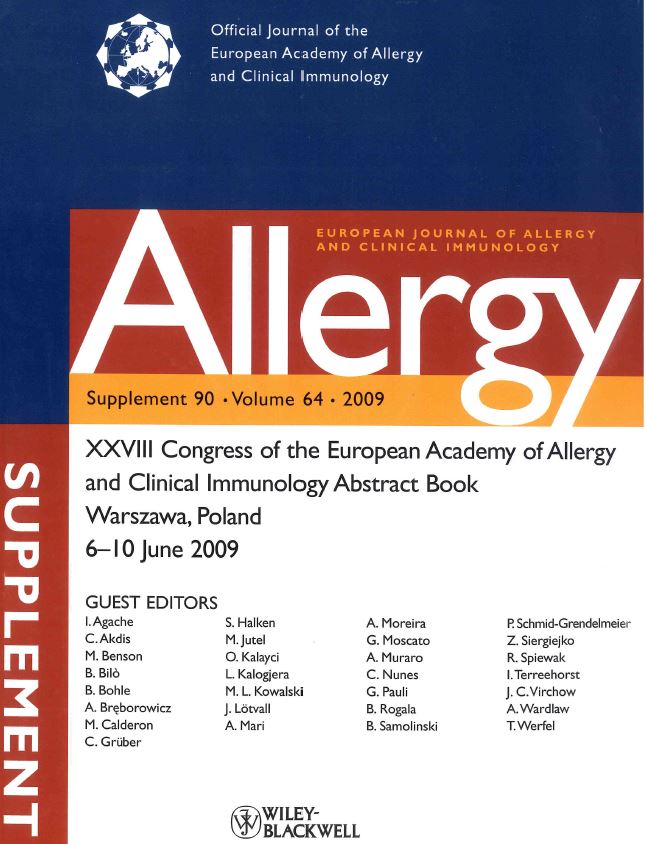The XXVIII European Academy of Allergy and Clinical Immunology Congress Warsaw,
Poland 6-10 June 2009 – Abstract No. 1280
Berardi, L.; De Amici, M.; Vignini, A.; Mantegna, G.; Mosca, M.
Foundation IRCCS Policlinico S. Matteo, Department of Pediatrics, Pavia, Italy;
Foundation IRCCS Policlinico S. Matteo, Department of Dermatology, Pavia, Italy
Background
Specific foods and food additives can induce adverse gastrointestinal (GI) reactions, including food allergies that involve an abnormal immunologic reaction to food proteins or food intolerance which is not immunological in nature. Food intolerance in the absence of specific digestive enzymes is the result of toxic by-products from undigested foods that induce GI symptoms different from allergic symptoms.
Methods
Food allergies were investigated by two specific tests: rast and the prick test. Food tolerance tests vary in mechanism and reproducibility. The Alcat Test is a new assay for food intolerance that utilizes electronic hematology instrumentation and computerized data analysis to measure volumetric shifts in white blood cells after antigen exposure.
Results
A group of 15 patients (4 males and 11 females) affected by GI symptoms and negative for allergies (prick and/or rast) agreed to be tested with the Alcat Test. Patients in therapy with systemic corticosteroids, antihistamines and anticoagulants were excluded. After two months we evaluated the effects of the elimination diet which was based on the results of the Alcat Test. We lost three patients during follow-up, in 54% of the remaining subjects symptoms improved significantly while 46% showed no change
Conclusion
The Alcat Test appears efficacious in detecting food intolerance however unfortunately we did not test whether this improvement was durable and we cannot rule out a placebo effect.













